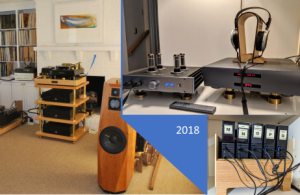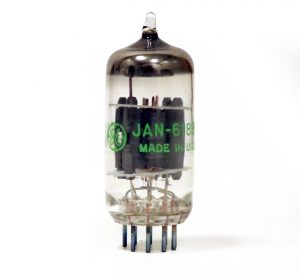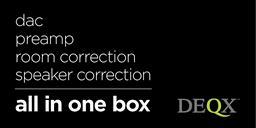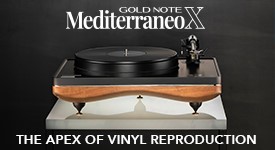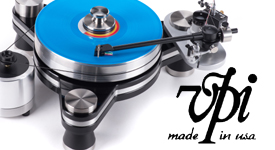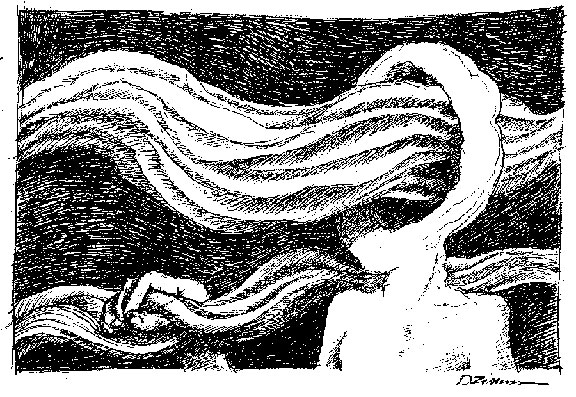
I stopped writing about equipment quite some time ago. I blamed it on a number of things that were absolutely true … old man, heavy boxes; crazy distributors, the clamor of other things in my life. While this was the truth, it wasn't the whole truth.
Like many men in their sixties, my hearing is deteriorating. As Mark Twain described bankruptcy … at first slowly and then quite quickly, I finally reached the point where denial and the oddest form of shame gave over to the bleak reality that I needed help.
This was a day of profound darkling desolation. It wasn't because I faced yet another signpost marking my fleeting mortality. I do not fear death. But this black taloned thing terrified me. I knew the horror stories. Hearing Aids (HA's). When it came to listening to music, it was over.
I could say it would be hard for you to understand what music has always meant to me, but that's just me being my narcissistic self. I suspect I have a lot of company out there in my age group. Those for whom music has been perhaps the one constant over the decades; those who grew up without hearing protection, but a passion for live and recorded music played at barely less than lethal levels. Those who understand that knowing that your hearing is declining is only one tick less rending than being told your vision is deteriorating towards darkness.
People talk about the bravery it takes to face the particularly hard things in life, but more often it's not really bravery, it's a simple answer to a brutal question … what are you going to do now? And since just curling up on the floor in the fetal position is generally an undignified and impractical option, we simply … go on, with the virtually infinite human capacity for suffering.
And it was not just age-related decline. Along with noise and age induced hearing loss, I had two other issues at work (which you don't need to hear about) that both hastened and worsened the decline. To slow what was happening I had to get up off the pity floor and do what had to be done. Driving and crying.
I was very, very fortunate. The audiology clinic where I was referred is apparently owned by someone who has some undefined connection to the music world and serves many musician clients.
This meant two essential things. The first was empathy for what the possibility of losing my music meant to me psychologically. Secondly, there was available state of the art equipment and a treatment path, where many musicians had gone before me. HA's with a serendipitous affinity for music, and an audiologist with the empathy, patience and endurance to go through the arduous process of "getting them right" for this crunchy old man (bless you Tori).
I'm not going to tell you the end result is normal hearing because that's a lie. I'm not going to tell you I came forward when I knew I should, because I didn't. I think we all carefully keep that child who will not look under the bed. I'm not going to tell you the process was simple and straightforward, because it wasn't. And, finally, I won't tell you they didn't drive me nuts for a while, because they absolutely did.
What I will tell you … is that a year later I am no longer lost in meetings or conversations in restaurants, and saying "what?" all the time. And that I have months ago reached equanimity (somewhat cleverly I might immodestly suggest) in the complex interaction among my ears, brain, aids, and music … live or recorded.
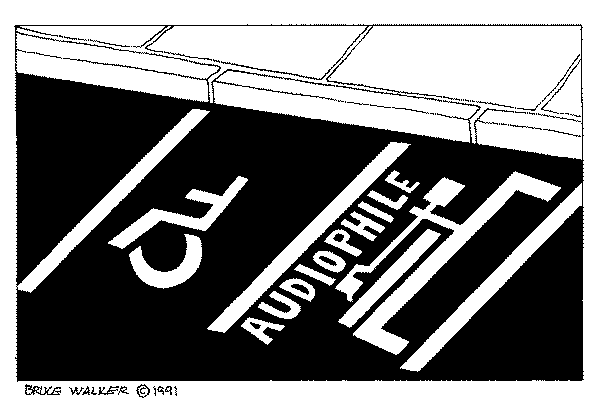
This is for you.
I know you are out there. I know you know, however you may push it back, and I just want tell you … no matter what you may have heard or read, it isn't the end unless you let it be … because I promise you, untreated, my enjoyment of music was declining in horrifying parallel with my hearing loss. Yours will too. Akin to when I quit playing music professionally … my chops declined, and with that loss so too went my pleasure in playing, because I couldn't do what I used to be able to do.
Ok … enough sorrow and rendering of garments. Now, having mourned, we move forward.
Not Your Father's Hearing Aids
Hearing Aid technology has progressed very much like technology has progressed elsewhere … fast and small…better. New devices are inconspicuous, complex (sometime overly so) and can be finely tailored, not only to measured hearing loss, but to individual sensibilities and preferences.
Is the final result normal hearing? Sorry … no. The best description I can give you is that I was born colorblind, and no, I don't see in black and white, but I do know that how I see color is not precisely the same way in which normal people do. But my internal world is richly colorful, it's just they ain't your colors.
So even though I was not magically transported back to my twenties … the incontrovertible and glorious fact is I hear further into recordings than I have for some time, and at levels that don't make my family want to kill me in my sleep.
Is what I hear with the damage pushed aside a bit, exactly what I used to hear? Nope, but what sensory experiences are precisely what they used to be for people our age? Point is that now I can clearly hear the triangle in Holst's, Mercury, and noise gating, compression and all the unholy host of sins that plague some recordings. Oh, and I can also hear all those wonderful analog noises in, It's a Beautiful Day, and Ampex tape hiss in the Mercury classics.
Most importantly … the life of music has returned.
I will move to the process and my experiences with it soon enough, but I want to dwell right here for a bit. I have my reasons.
50% or more of men in my age group experience erectile issues (or so I am told), and the little blue pill, once the butt of sniggers and jokes, has become commonplace. No one needs to know if you use this assistance and it's the same for HA's. They have reduced in size to the point that unless someone looks very closely, they won't know you wear them, unless you make a point of it.
The only obvious part of mine are two, very fine, clear tubes that run from my ear pieces to the tiny units daintily perched in the space between my ears and head … neatly obscured by my glasses. And since men our age tend to sprout a lot of ear hair, you can probably do a comb over to obscure even that.
They are essentially a cosmetic non-event. I put my glasses on and my hearing aids in … almost as single process. Point being … the on-going reality is much less intrusive than the anticipation. It ain't that bad.
So it becomes a simple question …want to take the blue pill and have sex, or don't … and forgo this needed pleasure and connection? Your call, but false pride is a nasty slut.
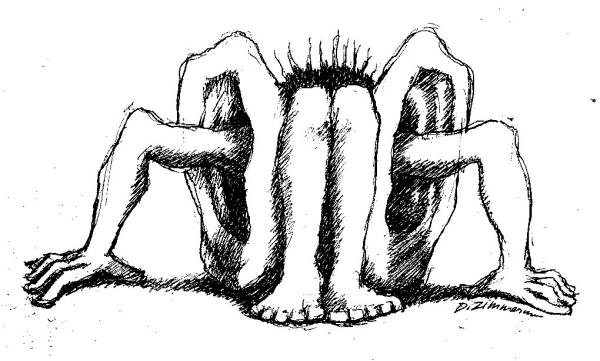
The Journey
You visit the dentist and optometrist (I hope) on a reasonably regular basis. If you are in your sixties, you need a baseline audiogram (and EKG, colonoscopy, etc.) even if you don't think you have an issue.
When I finally forced myself (with the increasingly strident support of others) to go in for testing, the results were depressing but not unexpected. I had moderate loss in my right ear with some specific "notches." My left ear was moderately severe.
So I sat there ... disconsolate. Then the audiologist gave me hope. She told me that with "moderate" correction she probably could get me pretty close to flat in both ears, and compensate for the greater loss in my left ear.
Then we talked about music.
Now what follows is not an endorsement or advertisement … simply the path I took.
She went on to explain that most of their musician clients significantly preferred a particular brand (Phonak), which is made in Switzerland. It came in three models; basic, intermediate and advanced; with the designations based on function complexity (they all used the same motor).
Being the pretentious git I am, I assumed more features … better performance. Actually, the opposite turned out to be true. The high-end aids were capable of automatically doing all sorts of sonic magic, most of which drove me into sensory purgatory. Why they thought they needed to lock onto a car speeding by and THAT is what I really needed to hear, completely escapes me.
Also, flat out of the box and set just to compensate for my measured loss, they sounded nasty. Music was impossible. Plus my brain was being bombarded with a vast amount of new stimuli, which would take some time to accommodate. Taken together it was surreal, and not in a good way. All I can say is that, at that time I couldn't listen to music and tiled public bathrooms were a hugely painful experience and I will leave it at that.
This is where we return to our testicles. I refused to accept this outcome, and kept returning to my audiologist to explain in excruciating detail what was wrong. I was implacable. Nice thing about audiophiles, we have more of a common language with audiologists than the general public.
Eventually we arrived at more boost at the bottom end of their operational limits (which added much needed warmth and significantly increased perceived body), and tweaked other parts of the spectrum as we went. Additionally, we ended up turning off all the automatic features except for three modes: standard (which provides everyday help by compression, focus and other things that makes interacting with other humans more possible), open (which is music mode … no compression or interference at all, just equalized gain), and 90 degree focus, which really helps reduce extraneous peripheral noises, such as those experienced when trying to listen to a single person in the middle of a cacophonous restaurant.
So dumb me spent more than I needed to (or rather my insurance company did). More is not always better … just a cautionary tale about the typical excesses of audiophiles.
Working with My System
I'm fortunate, in that my audio system eschews the hair-shirted conviction audiophiles have been led like sheep to accept … that any alteration of the signal (e.g. some version of tone controls) is evil. Mouthing the dogma, consciously or unconsciously we get around the rule with a host of things that essentially perform the same function. From our tastes in speakers, to wires, tweaks of various sorts, and even our room treatment … we alter to fit our perceptions and tastes, as well we should.
I will taste the chef's preparation as it comes to me first, but once it hits my table it's mine and if I decide it needs more salt or even ketchup, so be it, feckless philistine that I may be.
So my system has adjustable crossover controls in the main towers, separate mid-bass couplers, sub, and true sub levels. And at first I did a lot of fiddling, the only portion of which I retained is just a scootch more mid-bass, no doubt balancing for the fact I am now getting much more upper mid-range information through the HA's.
My First Mistake
My first major judgment error was the assumption that since I had the damned things, I would use them for listening to music at or near their volume setting for everyday use. Fairly stupid … more stupid was persisting and just assuming I would have to accommodate to the highly unsatisfactory results. Then, duh, it occurred to me … turn the HA's down, and the system UP (to more optimal but still very moderate levels). 75% of my issues fell away. Eureka! I needed to start thinking of them as some sort of equalizer when listening to music, and proceed accordingly.
My Second Mistake
In "open" mode the HA's are like water from a fire hose, so I continued to leave them in normal mode, with the compression and other automatic stuff that ultimately drove me to distraction when I was listening to music (like them suddenly attenuating a bit, or just varying tonality for no apparent reason). Solution … open ‘em up, and turn them down. Now my default setting for music is open mode, minimum gain. All the weirdness is gone, and I am listening at system levels that are reasonable for normal humans. Bonus … I can carry on conversations AND listen to music at the same time, which was getting increasingly difficult.
Headphones
While I have never been a hardcore headphone user, there are a number of practical reasons in my current life that make this an increasingly good choice; primarily getting musical nourishment from PC music and streaming audio/video from portable sources. I have a brace of good headphones, from the classic original Grado R-1000's, to the surprisingly pleasing and comfortable Sony MDR-7506's.
I use the Sony's and a lesser pair of Grados paired with a nifty new toy, the Fiio E-17 DAC and headphone amp (USB powered that defeats lesser PC sound cards to take over the conversion duties, with analog inputs for better device DAC's). So my laptop goes through the Fiio DAC and is powered via USB, and my workstation (at work), which has a good card and a graphic equalizer, goes through the analog section, but also USB powered.
The Fiio also has good battery life (easily an entire day of unpowered listening). It's about the size of a deck of playing cards and done up in chunky brushed metal, with a substantial feel and simple to use controls. It takes USB, SPDIF and analog inputs, and outputs to analog. It does feature a digital output specifically for the Fiio desk top docking station, but I don't know enough about that to even comment.
But what about the HA's and headphones? After giving it the college try, now I simply pull them.
I am primarily using the Sony's, which are a closed-basket design. This eliminates leakage so I do not disturb any of my more tightly wound workmates, and they are super comfortable. I can wear the Sony's an entire work day without fatigue or discomfort, which I cannot do with either pair of my Grados. However, irrespective of headphone type, I simply could not eliminate feedback through the HA's, which shouldn't come as much of a surprise.
And my ears got sore. So, now I pop the HA's out … put them in a case, and use either the Fiio tone controls, or the workstation equalizer. The combination has oodles more gain than I could ever use, and like many others who work in one of the ubiquitous cubicle chicken farm horror shows … it allows me to at least partially dissociate from my external work environment. As needed, I pop them back in. All my workmates know I wear them, so it's no big deal.
This has created an interesting situation. There are three of my colleagues, each with a serious music jones. We are all different in our tastes and sensibilities, but we have created this brotherhood of the traveling CD's, and are constantly exchanging, and bagging on each other's music. Add to this a corollary effect of digging deeper into my collection to prove I am, by far, the most esoteric and obscure of the group. (Sadly, I am not).
Now this thread may seem tangential and unrelated to the HA's, but it isn't. Humans are systems … when a significant part of the system changes, the rest of the system shifts, sometimes in unpredictable ways. The external logic may not hold up, but internally its rock solid. So as I take a break and write, I'm listening to Eddie Palmieri's luscious Lacumi, Macumba Voodoo through the Sonys, and the gray, soul-sucking environment in which I work … recedes.
Safely tucked away in my alternate universe, for fragile and precious moments I can escape the vagaries of our increasingly corrosive world, and my aging shell. And the trail of breadcrumbs that led me here was provoked by my primary journey with the HA's.
Bottom Line
Getting old sucks on ice. You can roll over, or "rage against the dying of the light" (Dylan Thomas).
It was very hard to accept what was happening to me, but it's not like I am terminally ill or anything. I just need some electronic assistance (Cyber Helper Monkeys – Sheldon Cooper).
So I will repeat … get a baseline audiogram and should the news be less than positive, suck it up and do what you need to do. If a whiny bitch like me can do it, so can you.
And no, I will not return to equipment reviews … but I may do some more music stuff…who knows?
Dr. S.
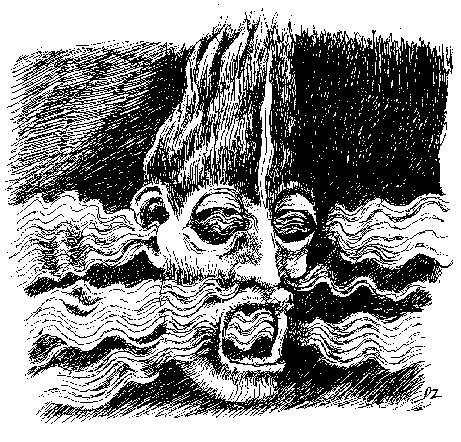
[Cartoons by Dan Zimmerman and Bruce Walker]




